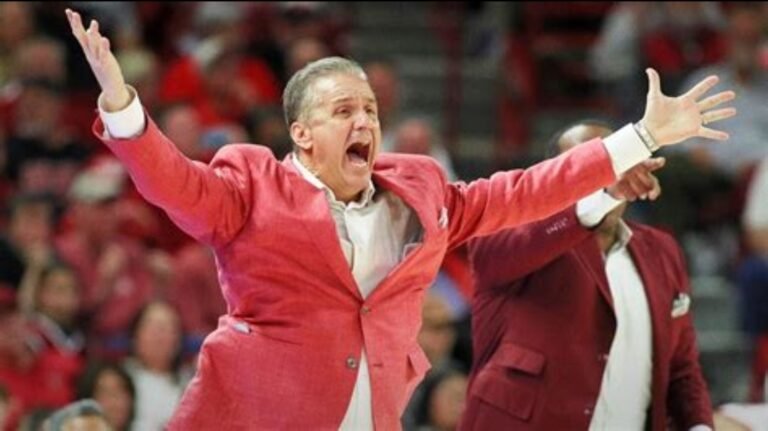In a candid reflection on his roster-building strategies, Arkansas Razorbacks head coach John Calipari has acknowledged the need for significant adjustments in his approach to team composition.
This admission comes after a series of early exits from the NCAA Tournament and challenges adapting to the evolving landscape of college basketball.
Historical Context
During his tenure at the University of Kentucky, Calipari was renowned for his “one-and-done” recruiting philosophy, attracting top-tier freshmen who would declare for the NBA Draft after a single collegiate season. This approach yielded considerable success, including a national championship in 2012 and multiple Final Four appearances. However, recent seasons have highlighted the limitations of relying heavily on freshmen talent, especially against more experienced teams.
Challenges at Arkansas
Upon transitioning to Arkansas, Calipari faced the imperative to reassess his recruiting and roster management strategies. The college basketball environment has undergone significant changes, notably with the advent of the transfer portal and Name, Image, and Likeness (NIL) policies, which have redefined player movement and team dynamics.
In an interview with Jim Rome, Calipari discussed the necessity of adapting to these changes: “I can’t recruit seven freshmen on my team. I can’t do it anymore because teams are too old.” This statement underscores the challenge of competing against teams laden with veteran players, some utilizing additional eligibility years granted due to the COVID-19 pandemic.
Strategic Adjustments
In response to these challenges, Calipari has begun to integrate a blend of experienced transfers and select freshmen into his roster. This strategy aims to balance youthful talent with seasoned leadership, fostering a more cohesive and competitive team dynamic.
Reflecting on previous tournament disappointments, Calipari noted the impact of experience: “I don’t think you can do that when the other guy’s 25 years old, 24, 26, and your guy’s 19. You can’t.” This realization has prompted a shift towards recruiting players who can contribute immediately and provide maturity on the court.
Collaboration and Insights
Conversations with fellow coaches have also influenced Calipari’s evolving philosophy. Kansas head coach Bill Self cautioned him about the potential pitfalls of an overreliance on freshmen, emphasizing the value of experience in achieving sustained success. Calipari acknowledged this advice, stating, “Bill tried to warn me that I may regret the way I constructed my first Arkansas basketball roster.”
Looking Forward
As the Razorbacks progress through the season, Calipari’s adaptive approach will be closely scrutinized. The integration of experienced transfers alongside talented freshmen aims to create a balanced and resilient team capable of deep tournament runs. This strategic pivot reflects a broader trend in college basketball, where adaptability and a willingness to embrace change are becoming essential components of coaching success.
In conclusion, John Calipari’s admission of the need to modify his roster-building strategy signifies a pivotal moment in his coaching career. By embracing a more diversified recruitment approach, he aims to navigate the challenges of modern college basketball and restore his team’s competitive edge.



